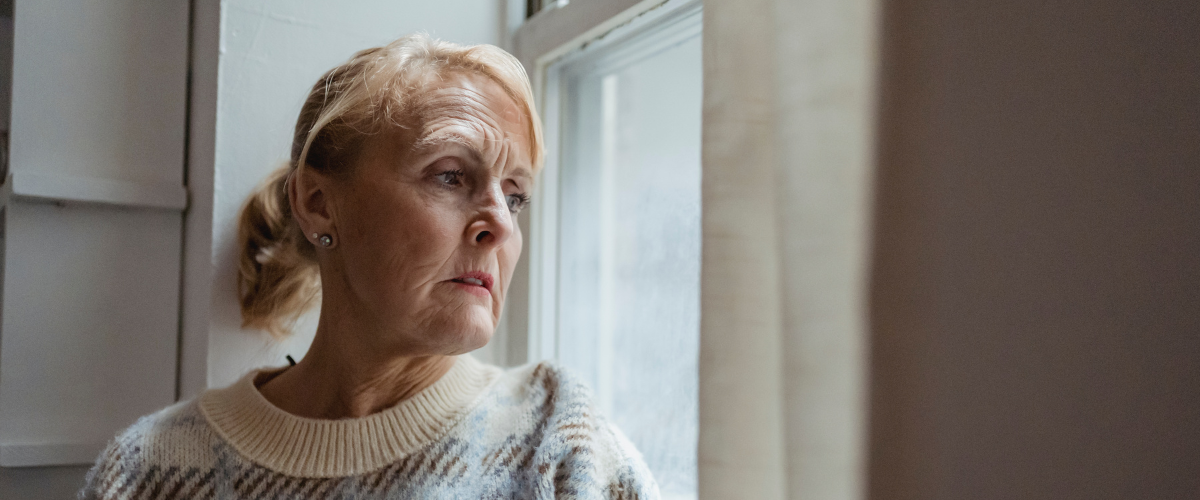If the older person you care for is always depressed throughout the winter months, it could be something more severe than the post-holiday blues. It’s probable that the long, foggy winter days and limited time spent in the sun are to blame.
The following are some common symptoms that may indicate that an elderly parent or other older loved one is suffering from more than just a mild case of cabin fever:
- Drowsiness and a state of exhaustion
- Persistent feelings of melancholy that refuse to go away
- Sluggishness or depletion of one’s energy
- Problems falling asleep and staying asleep, including both insomnia and oversleeping
- Gain or loss of weight that was not supposed to happen
- A sense of having no value
- Separating oneself from one’s beloved organizations, activities, and clubs.
- Difficulty concentrating and keeping one’s attention span for long periods of time
- Change in personal hygiene
- Easily angered and prone to irritation
- Weeping or prone to tears
If the senior citizen you care about exhibits one or more of the symptoms listed above, it is probably time to consult with the senior’s primary care physician. They are in the best position to decide whether it is simply the post-holiday blues or if it is something more serious that requires treatment by a qualified medical professional.
Seniors’ Vitamin D Deficiency and Seasonal Affective Disorder
Vitamin D is becoming increasingly important for both physical and mental health. This essential nutrient has been linked to improved immune function, a lower risk of cancer and diabetes, and strong bones and hearts.
People of any age can be affected by vitamin D deficiency. however older people are at a higher risk than younger people. Mild symptoms of vitamin D deficiency include moodiness, extreme tiredness, and muscle and bone discomfort. Seniors who do not get enough vitamin D are more likely to develop osteoporosis, which is a serious loss of bone density that can result in fractures.
Dietary changes often limit a senior’s meal options, and aging bodies have more difficulty converting and absorbing vitamin D from food.
Furthermore, seniors are more likely to have mobility issues that prevent them from obtaining enough sun exposure, and their bodies are less effective at turning sunlight into vitamin D as they age. According to research, seniors’ vitamin D levels tend to dip during the winter months when the days are shorter and the light is at a lower angle in the sky, both of which are unfavourable for synthesis in the skin. Several drugs, including the anti-inflammatory prednisone, may also reduce vitamin D synthesis and metabolism.
Overcoming Seasonal Affective Disorder
By taking some precautions each winter, you or a senior loved one can avoid acquiring seasonal affective disorder. They are as follows:
- Stay away from alcoholic beverages or restrict your consumption to no more than one or two glasses per week.
- Remove all of the sodas, sweets, and foods high in sugar from your regular diet.
- Make a commitment to exercising every day for thirty minutes, whether it be walking or swimming.
- Participate in an activity that requires concentration, such as chair yoga or Pilates.
- Consume a diet rich in lean proteins, fruits, and vegetables to maintain a healthy weight.
- Regularly spend time with your loved ones, including your family, and your friends.
Last but not least, those in the mental health profession frequently recommend employing a gadget known as a “light box.” It accomplishes this by lowering the amount of melatonin generated in the body, which aids those suffering from the winter blues. Lowering your melatonin levels can help you feel less drowsy. Discuss this possibility with your primary care physician to see if it applies to either you or your aging loved one.
Want to learn more?
ConsidraCare’s live-in caregivers are trained to offer professional support and companionship to seniors. reach out to us at wecare@considracare.com or call us at 1-855-410-7971 to arrange care for a loved one.
Maryam is a leading writer at ConsidraCare, specializing in senior care. Her well-researched articles are widely recognized for guiding families through the complexities of caring for loved ones, establishing her as a trusted and authoritative voice in the field.


